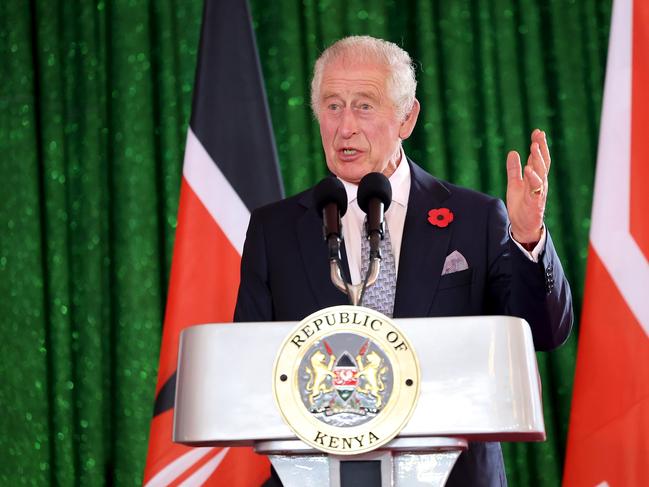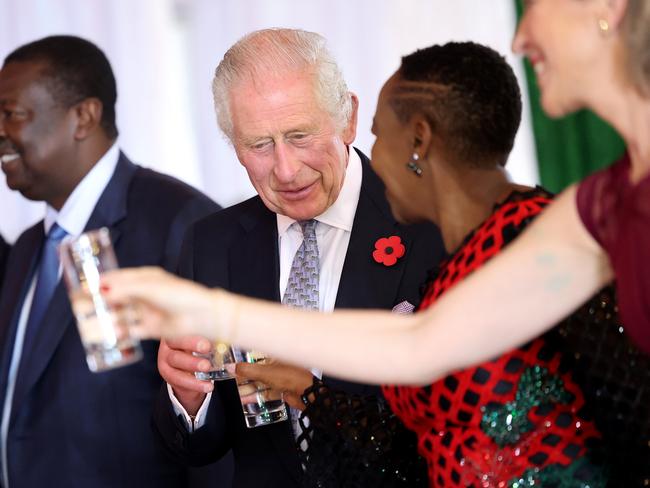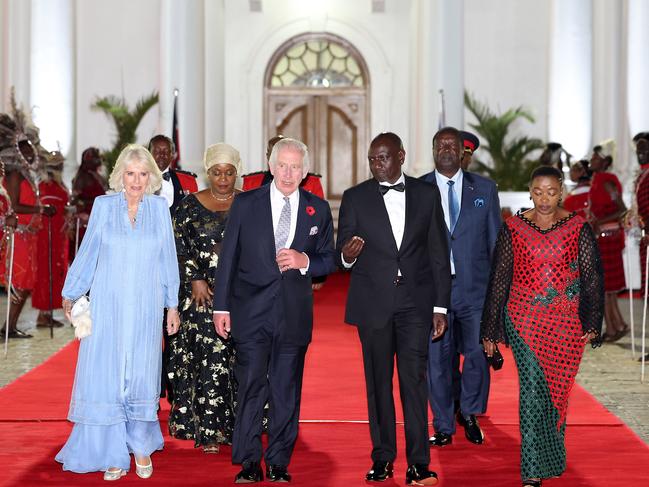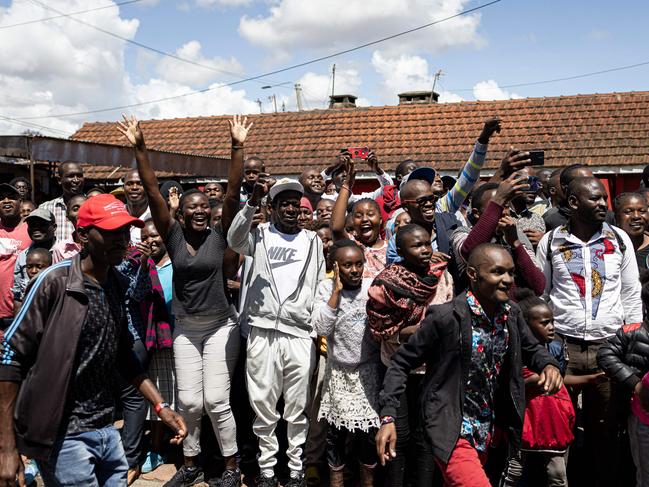King Charles’ historic tour of Kenya has begun as colonial abuses loom large
The British monarch stopped short of offering an apology for “abhorrent and unjustifiable acts of violence committed against Kenyans”.
Royals
Don't miss out on the headlines from Royals. Followed categories will be added to My News.
King Charles III said there could be “no excuse” for British colonial atrocities against Kenyans as he visited the country, but did not offer the apology demanded by some in the East African nation.
“There were abhorrent and unjustifiable acts of violence committed against Kenyans as they waged... a painful struggle for independence and sovereignty,” Charles said at a state banquet hosted by Kenyan President William Ruto.
“And for that, there can be no excuse.”
Britain’s tarnished colonial past took centre stage in Kenya as the royal began a four-day state visit, with a plan to acknowledge “painful aspects” of the countries’ long shared history as local leaders press demands for reparations.
Accompanied by Queen Camilla on his first visit as monarch to a former colony, Charles arrived in the capital Nairobi overnight and on Tuesday was welcomed by president William Rutoto and a 21-gun salute and a guard of honour.

King Charles III paid a solemn visit to the birthplace of independent Kenya, at the start of a trip clouded by calls for an apology over Britain’s bloody colonial past.
Although the four-day state visit has been billed as an opportunity to look to the future and build on the cordial modern-day ties between London and Nairobi, Buckingham Palace has said the king will address historic “wrongs” during decades of colonial rule.
It is the 74-year-old British head of state’s first tour of an African and Commonwealth nation since becoming king last year and comes just weeks before Kenya celebrates the 60th anniversary of independence in December.

Under leaden skies, Charles and Camilla were given a ceremonial red-carpet welcome by Kenyan President William Ruto, who said on social media platform X he was “honoured” to host the royal couple.
Later Charles and Ruto laid a wreath at the Tomb of the Unknown Warrior in the Uhuru Gardens memorial park.
Uhuru means “freedom” in Swahili and the site is steeped in Kenya’s turbulent history. Independence was declared there at midnight on December 12, 1963.
The Union Jack was lowered and replaced with Kenya’s black, red, green and white flag.
The gardens were built on the site of a camp where British colonial authorities detained suspected Mau Mau guerillas during the suppression of their 1952-1960 uprising.

The so-called “Emergency” period was one of the bloodiest insurgencies of the British Empire and at least 10,000 people — mainly from the Kikuyu tribe — were killed.
Tens of thousands more were herded and detained without trial in camps where reports of executions, torture and vicious beatings were common.
Britain has said that while the royal tour will “spotlight the strong and dynamic partnership between the UK and Kenya”, it will also “acknowledge the more painful aspects” of Britain’s historic relationship with the East African country.
Buckingham Palace said Charles will take time to “deepen his understanding of the wrongs suffered” by Kenyans during colonial rule.

On Sunday, the Kenya Human Rights Commission urged him to make an “unequivocal public apology … for the brutal and inhuman treatment inflicted on Kenyan citizens”, and pay reparations for colonial-era abuses.
Britain agreed in 2013 to compensate more than 5,000 Kenyans who had suffered abuse during the Mau Mau revolt, in a deal worth nearly 20 million pounds ($25 million at today’s rates).
Then foreign secretary William Hague said Britain “sincerely regrets” the abuses but stopped short of delivering a full apology.
- additional reporting AFP




